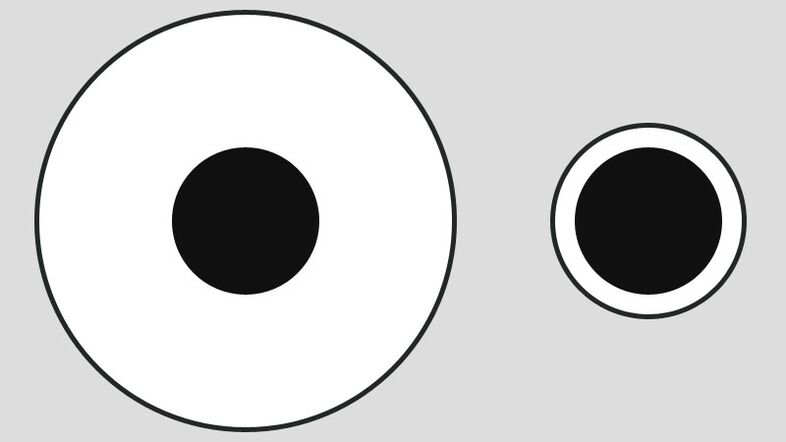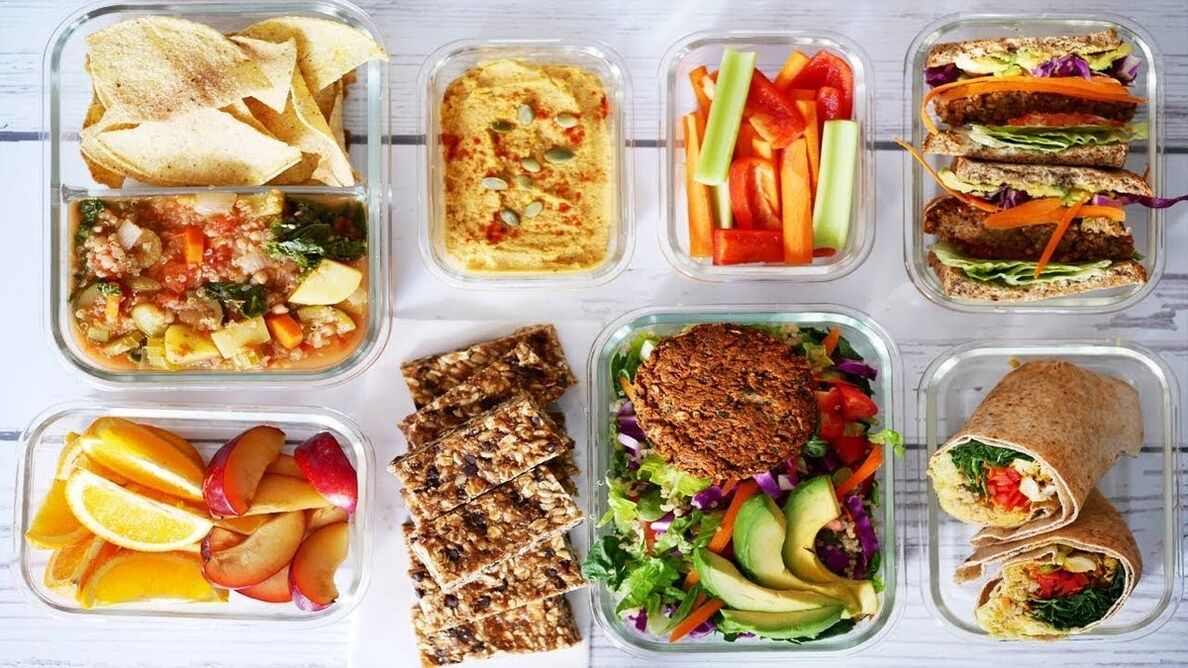
Proper nutrition for weight loss is not about strict restrictions, fasting and refusal of your favorite food. First of all, this is self-care, food selection and what makes you feel great and improves your quality of life.
The all-or-nothing rule doesn't work in this case. There's no need to try to change things up in one day and one at a time - this often leads to breakdowns and overeating as a result. It is best to make small changes in stages. This will help you achieve more results in the long run. When your small changes become habits, add more healthy rules.
The main thing to remember is that striving for health is a lifelong journey. You should enjoy it, not stress.
Why should you eat healthy food?
In addition to helping you maintain a healthy body weight, eating a healthy diet that includes fruits, vegetables, whole grains, dairy, and protein has other important benefits.
Poor nutrition is the most common cause of immunodeficiency worldwide. Scientists link the occurrence of many chronic diseases with an improper diet. For example, 38. 5 thousand men and 67 thousand women participated in one of the studies. Over 8-12 years of observation, it was found that junk food contributes to the decline of biomarkers, and can also cause heart disease, hypertension (high blood pressure), type 2 diabetes, diabetes, and obesity. bone and some types of cancer.
Evidence shows that 30–35% of cancer deaths are related to diet, 25–30% are due to smoking, 15–20% are due to infections, and the remaining percentage are due to other factors. other factors such as radiation, stress, physical inadequacy. . activities, environmental pollution, etc. v.
Poor nutrition affects not only physical health but also mental health. According to the Mental Health Foundation, two-thirds of people who eat fresh fruits and vegetables daily have no mental health problems.
So the link between good nutrition and a healthy weight, reduced risk of chronic disease, and overall health is too important to be ignored.
How long does it take to form eating habits?
Nowadays, everyone is looking for a quick weight loss solution, and changing habits that promote it and last long takes time. This has been confirmed by recent studies.
It has long been believed that for a steady habit to emerge, 21-28 days is enough. This statement mainly concerns the activities of a doctor named Maxwell Maltz. In the 1950s, he was a plastic surgeon and noticed that it took his patients at least 21 days to learn to look comfortably in the mirror after surgery. In addition, he found that it took about the same amount of time for people with amputees to lose the sensation of a phantom limb.
As a result, he developed the idea in his 1960 book Psychocybernetics. The idea has since been supported by many doctors, public figures, and coaches. Over the years, the word "minimum" has disappeared, and the 21-day period has in fact become a "scientific" law.
What are the new studies talking about?
Philip Lally is a health psychology researcher at University College London. In a paper published in the European Journal of Social Psychology, Lally and her analysis team set out to find out how long it actually takes to form a habit.
The study involved 96 people. Each person chose a new habit for 12 weeks and each day reported whether they followed it or not.
Some people adopted simple rules like "drink a bottle of water at lunchtime. " Others chose more difficult tasks, such as running 15 minutes before lunch. After 12 weeks, the researchers analyzed the data to determine how long it took for each person to go from initiating a new behavior to performing it automatically.
On average, it took more than 2 months, or rather 66 days. But the time it takes to form a new habit can vary greatly depending on the behavior, the person, and the situation. Overall, the study took people 18 to 254 days.
How to start eating right and what habits can help in weight loss?
1. Having a calorie deficit
The main idea is as old as the world -you need to consume more calories than you consume. . .
A negative calorie balance forces the body to use its accumulated reserves to provide the energy it needs. This energy mainly comes from the body's stores of carbohydrates and fats.
During the weight loss phase, the daily calorie deficit should be from 300 to 500 kcal.
In addition, it is important to monitor the indicators of the BJU (protein, fat and carbohydrate).
2. Reduce the amount of fat in the diet
According to WHO (World Health Organization), priority should be given to unsaturated fats (found in fish, avocados, nuts, etc. ) and reduced consumption of saturated fats (fat meats, butter, palm, coconut oil), etc. ), as well as industrial trans fats found in baked, smoked, fried foods, convenience foods, baked goods, chips, crackers, etc. v.
Fat should be no more than 30% of the total food consumed in a weight loss diet, of which less than 10% is saturated fat and no more than 1% is trans fat.
It is not necessary to completely eliminate fat from the diet. They are needed to provide the body with polyunsaturated fatty acids, namely linoleic and alpha-linolenic acids. They are not produced by the body and are mainly found in vegetable oils and fish.
3. Get enough protein
Protein is the most important component of the body and must meet about 40% of total energy needs.
When you're trying to lose weight, a high-protein diet can make you feel full for longer by affecting the hunger hormone ghrelin. Protein also counteracts muscle loss during dieting. The more muscle mass, the more energy expended and the higher the calorie requirement.
Proteins of animal origin have a higher biological value than vegetable proteins. However, they also tend to contain extra fat and cholesterol, so should be consumed in moderation.
According to research, a high-protein breakfast can reduce cravings and calorie intake throughout the day.
4. Avoid simple carbohydrates
In total, carbohydrates in the diet should make up about 30%. They are usually divided into simple and complex. It takes longer to process the latter and produces less insulin, which helps you feel full and avoid overeating.
Foods containing simple carbohydrates include sugar, white flour baked goods, jams, soft drinks, juices, etc. v. For simple carbohydrates, it is better to choose the first half of the day, when blood sugar is low after sleep, glycogen stores are depleted and the body's energy needs to be restored.
For foods rich in carbohydrates, whole grains are ideal because in addition to their high fiber and mineral content, they help saturate the body and promote digestion.
According to the instructions, you can useHarvard Healthy Eating Pyramid. . .
5. If you can't, but you really want to
As you know, "forbidden fruit is sweet". The more you forbid yourself from doing something, the more you want it. And guilt will pass if you can't yield to temptation, causing some people to give up and give up on what they started.
Therefore, the first step may not be to completely eliminate the harmful product, but to reduce the portion size and frequency of consumption. Over time, you will start to feel less craving for these foods.
6. Avoid Fatty Drinks
Avoid soft drinks and fruit juices.According to one study, these drinks are low in nutrients, and overconsumption caused Americans to gain 20 percent weight between 1977 and 2007.
A 0. 5 liter bottle of cola contains 240 calories and 65 grams of sugar. It has been shown that people who drink mostly water consume an average of 200 fewer calories per day than those who drink other beverages.
Drink water before meals. One study found that drinking water half an hour before a meal can reduce cravings and increase weight loss by 44% in just 3 months.
If you're not ready to give up unhealthy drinks right away, use a simple trick that can trick your brain.
Take a look at the image below. Which line is larger: horizontal or vertical?

In fact, both lines are the same length, but our brains tend to overestimate vertical lines. In other words, transferring this knowledge to the subject under consideration, taller cups and mugs seem to us to be larger and more accommodating than round and wide cups.
This way, you can drink about 20% less from a tall, thin glass than from a small and wide glass without feeling unsatisfied.
7. Get rid of alcohol
When switching to a sensible diet, alcohol should be given up. Why is this necessary?
- Alcohol increases cravings by acting on nerve cells, and also increases the likelihood of depression, unhealthy food choices and overeating.
- It negatively affects the digestive process, changes the secretion of gastric acid and its motility, leading to metabolic disorders.
- Alcohol causes water to pool in the body, which is why in the morning many people feel swelling and heaviness on the scales.
- Drinking alcohol can impair the body's ability to recover from exercise, thereby reducing its ability to burn excess calories through exercise.
- Drinking alcohol leads to shorter and lower quality sleep, significantly affects feelings of hunger and forces people to switch from carbohydrates to eating fats. According to research, every 30 minutes of sleep deprivation equates to 83 additional calories throughout the day.
But it is worth doing that low-alcohol drinks in moderate doses do not significantly harm the body. 100 ml of dry red wine contains 80 kcal, 100 ml of beer contains 45 kcal. For comparison, in vodka - 230 kcal per 100 g, so it is possible to drink a glass of dry wine or a glass of beer once a week without affecting weight loss.
8. Eat 5 servings of fruits and vegetables
Fruits and vegetables provide the body with fiber, minerals, vitamins, and phytochemicals. They serve several important functions in the body and are necessary for a healthy metabolism.
You should eat at least two servings of fruit and three servings of vegetables per day (one serving is about 150 g). It is worth mentioning that fruits should not be consumed too much, as they are high in fructose, as opposed to low-calorie and nutritious vegetables.
9. Pay attention to the rate of food absorption
Eating speed affects portion sizes as well as weight gain. Our brains and guts are in constant communication, so if your brain is distracted while eating, you may not be getting a signal as to whether you're hungry or full.
Remember that it takes about 20 minutes on average to get this information, so a slower meal can prevent overeating.
In addition, eating slowly is accompanied by more thorough chewing, which also contributes to weight maintenance. Studies comparing different eating speeds show that fast eaters are 115% more likely to be obese than slow eaters.

10. Redefine the way you prepare food
The way you prepare your food directly affects your health.
Grilling, smoking, frying, and frying are all common methods for preparing meat and fish. However, using these methods, a number of potentially toxic compounds (polycyclic and heterocyclic) are generated in foods, which have been implicated in various chronic diseases, including cancer andheart disease.
Healthier methods include baking, stewing, steaming, and more. v. They do not contribute to the formation of these harmful compounds and thus make your food healthier.
11. Eat from a small plate
It has been proven that the size of the cookware can affect the amount you eat. In large plates, people order 30% more servings on average than in standard plates.
The same amount of food on a large and small plate is perceived differently by the brain, this is known as the Delbeuf hallucination.

Agreed, it looks like the left part is pretty small. We bet you'll want to supplement. At the same time, the portion on the right plate, full to the rim, is felt more and, therefore, feels more satisfying.
12. Cut back on seasonings and flavor enhancers
Salt, spices, stock sauces and ketchup should be consumed to a minimum. Many of them contain sugar, colorants, preservatives, flavor enhancers, and stabilizers. They have an adverse effect on the functioning of the gastrointestinal tract.
WHO recommends consuming no more than 5 grams of iodized salt per day (about 1 teaspoon). WHO Member States have set a target of reducing global consumption by 30% by 2025, which will help prevent hypertension and reduce the risk of heart disease and stroke in adults.
13. Control emotional eating.
Our relationship with food is closely related to emotional health. We don't always take food to satisfy our hunger. Many people turn to food to relieve stress or deal with unpleasant emotions such as anxiety, sadness, loneliness, or depression. But learning healthier ways to deal with them can help you regain control. Serotonin levels play an important role here.
It is a neurotransmitter that helps regulate sleep and appetite, manage mood, and relieve pain. Since about 95% of serotonin is produced in the digestive tract, and the digestive tract is lined with hundreds of millions of nerve cells, the inner workings of the digestive system not only help with the digestion of food but also with the management of emotions. . state.
14. Choose healthy snacks
Snacking is one of the key factors in maintaining a healthy and nutritious diet. If you choose healthy foods that are high in protein and nutrients, snacks can be an integral part of your weight loss journey. Some of them can even keep you full throughout the day and curb cravings for unhealthy foods.
Avoid cookies and sweets, sandwiches and glazed cheeses instead of dried fruit, nuts, vegetable bars with hummus, natural yogurt, fruit, etc. v.

15. Be selective at the supermarket
In supermarkets, there is an unwritten rule about the so-called "Outer Ring". As a rule, the healthiest products are along the perimeter - fruits, vegetables, meat, eggs, dairy products, cereals, etc. v. Packaged and processed foods are mostly placed between rows.
Why are processed foods harmful? Scientists are increasingly coming to the conclusion that processed foods, with all their additives, lack of sugar and fiber, can negatively affect the gut microbiome and various bacteria in the gut. its city. As a result, the risk of chronic disease increases and creates fertile ground for overeating.
In one study, the consumption of processed foods was associated with an increase in cardiovascular disease, in another - with an increased risk of death from any cause.
In addition, special attention must be paid to the labels on the products, which clearly state the storage conditions and ingredients. Remember that the ingredients are listed in descending order, from highest to lowest. As little as possible. Make sure the product does not contain sweeteners such as sugar alcohols, MSG (E621), formaldehyde (E240), trans fats, dyes (E102, E104, E110, E122, E124, E129), etc. v.
16. Don't be distracted while eating
A new study claims that the perception of the sound of food influences eating habits. The study involved two groups of people eating crunchy foods, one with white noise headphones and the other without. As a result, participants who were distracted by white noise heard less food, which led them to eat more than those who heard crunch.
Another interesting experiment, the results of which was published in 2016, claimed that scrolling through social networks where you follow different culinary or grocery publics can cause so-called"visual hunger". In other words, even if you don't need food, the body sends signals to the brain using hunger hormones that you want to eat.

The main thing to remember for a healthy relationship with food is this: "Food is not the enemy". Instead of focusing on what you shouldn't eat, think about healthy, new, and delicious things you can add to your meals to diversify your diet. Don't try to change everything at once, form new healthy habits gradually and without stress.
As you know, a balanced diet is at least 50% of the weight loss results! Without it, even the most competent training will not bring the expected results.














































































